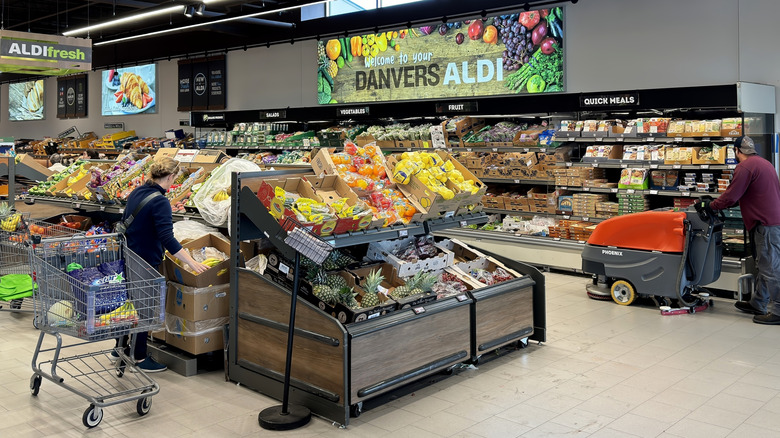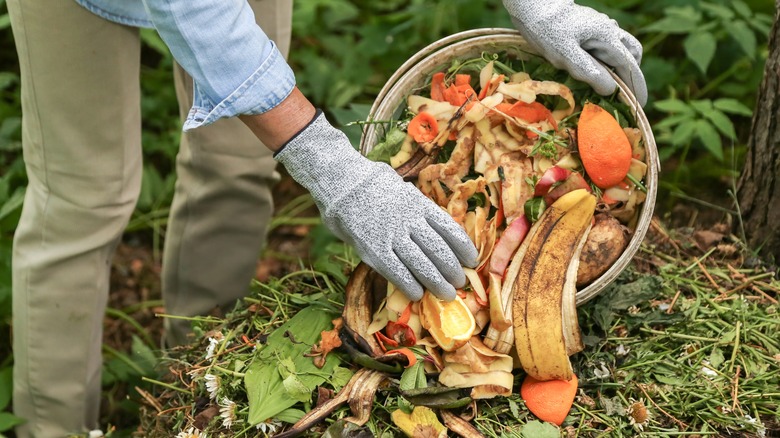What Does Aldi Do With Unsold Food Items?
It's no mystery why the German grocery chain Aldi has made quite the splash in the American market. Seeing as the discount food store is more affordable than Walmart, it makes sense that there are over 2,500 locations in the United States. But Aldi's commitment to reducing food waste by donating its unsold food items that are still safe to consume to Feeding America's network of food banks is a huge selling point. Even though Costco's unsold bakery items are also donated to the same organization, Aldi stands out for its ambitious goal of cutting its food waste in half by 2030.
Food waste is a huge problem in America, with the United States Department of Agriculture (USDA) estimating that 30% to 40% of its food supply ends up in landfills instead of feeding hungry families. One major contributor to this issue is when retail stores order more food than they can sell. That is why Aldi has committed to keeping its stores small and sustainable.
One way Aldi meets its goals for a more eco-friendly store is by maintaining its location size at around 12,000 square feet — much smaller than the 40,000-square-foot average for other American grocers. Less space to display means fewer products to throw away. Another way Aldi combats food waste is by only ordering the most sought-after products and regularly offering huge savings to consumers. Aldi also prides itself on its food ordering system, which uses a computer to calculate product orders and determine approximate merchandise quantities.
Aldi's commitment to sustainability
The truth is, Aldi isn't just a great place to get cheap household items; it's one of the few businesses in America actually committed to reducing food waste — so much so that in 2016, it joined the USDA and Environmental Protection Agency's 2030 Champions program, along with Wendy's, Starbucks, and Hilton hotels. And it seems like Aldi is on track to meet the program's goal to reduce food waste, seeing as in 2021, select stores in the Midwest diverted over 1.9 million pounds of inedible food for recycling and animal feed instead of letting it rot in landfills (per Aldi).
Aldi doesn't just focus on food waste, but waste in general. It displays all the products for sale in the packaging they were shipped in, instead of adding additional displays that would only end up in the trash. The discount supermarket also does not provide bags of any sort, encouraging shoppers to bring their reusable bags from home. On top of this, 90% of the non-food garbage in Aldi stores — like batteries and electronics — is also donated or sent to recycling centers.


